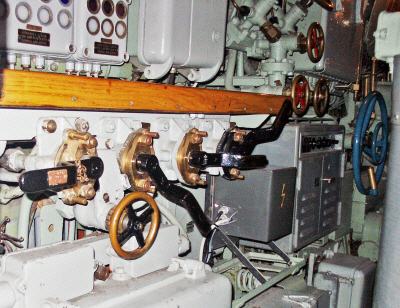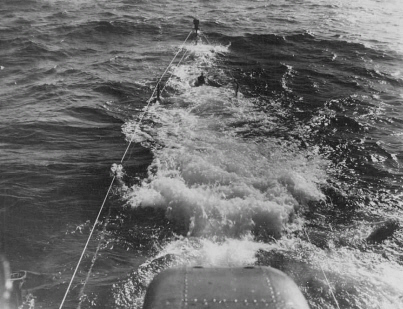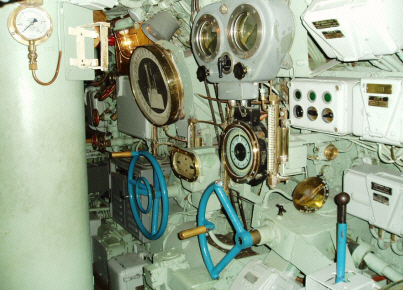Submerging
To
make the submarine submerge, you must balance its weight and buoyancy. A
settled procedure is utilized for
calculating weight differences from a standard condition to establish the
actual mass of the boat. That includes stores, crew number, torpedoes, tank
contents etc. The amount of compensating water required to be taken into the
compensating tank is thus settled. Fore and aft balance is settled by
pumping water between trim tanks.
The boat is now in trim to submerge.

U3 Diving controls for flooding and venting of ballast tanks. Photo U3 archives.
The submerging starts by flooding the ballast tanks.
Flooding and vent valves in each tank are opened. Flooding
took approx 20 sec and the procedure to get the boat
submerged lasted 30 sec. If all preparations were correct,
the boat would now be in trim submerged. It is now easy to
control the boat by means of the control surfaces and
propulsion. Smaller deviations in fore and aft trim and
weight deviations is now easily adjusted trough operating
the trim and weight compensating systems.

U3 diving. Air is escaping from forward main ballast tanks. Photo U3 archives.
When the submarine was to regain surfaced position, ballast
tanks vent valves were checked closed, flood valves opened
and high pressure (HP) air was let into the main ballast
tanks to empty them. To save H P air, after the initial
blowing, it could be followed by letting exhausts from the
running diesel engines to enter the ballast tanks.

Equipment for steering and depth control, 1 helms man 1 planes man. Photo U3 archives.